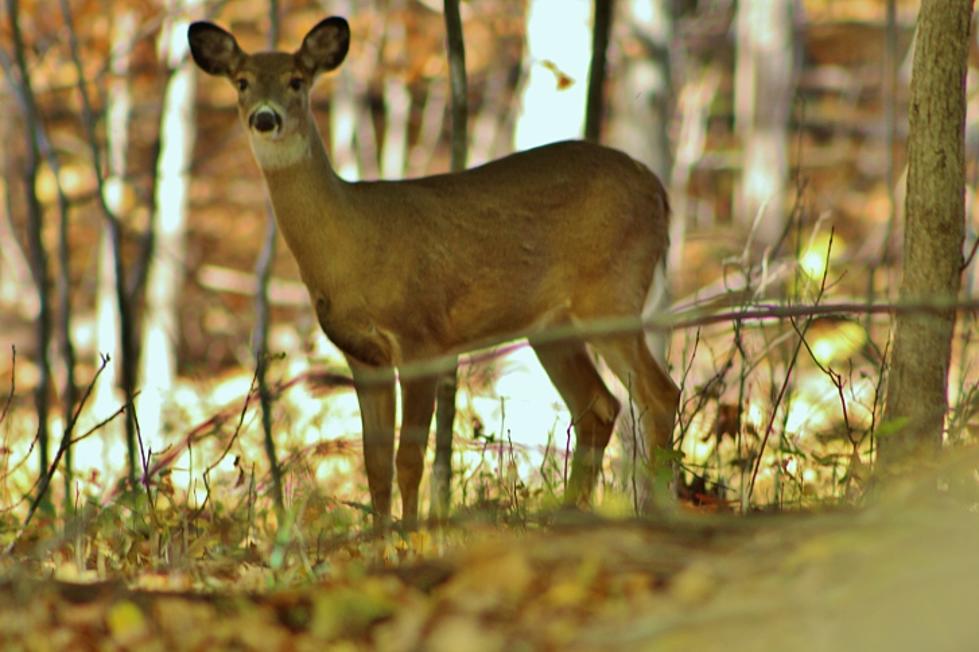
New Jersey deer – and humans – at risk of chronic disease
New Jersey just can't seem to catch a break when it comes to issues affecting our quality of life. The most glaring reminder of that was the arrival of COVID-19 to the Great Garden State.
In fact, forget about New Jersey for a moment. That was a major disruption across the globe at a scale never before seen by anyone living today.
Even scarier is how it started. Although there's debate on this front, the general belief is that it leaped from animal to human at a wet market in China.
Fortunately, we've come a long way since the spread in 2020. With that said, should we be preparing for the next thing?
Although this doesn't impact people at the moment, there is a fatal disease that's currently affecting deer. And it's one that has the potential to spread right here in The Garden State.
What it is
Chronic wasting disease, also known as zombie deer disease, is a neurological disease that slowly and fatally affects deer. They're referred to as zombie deer because those that are affected appear zombie-like in their appearance and actions.
According to USA Today, deer with chronic wasting disease act strange "due to the neurological signs of the disease, which include weight loss, lack of coordination, listlessness, and drooling." Aside from deer, the disease has also been found to affect moose and elk.
So far, cases have been reported in 31 states, as well as Canada. According to The Guardian, "chronic wasting disease (CWD), caused by prions – abnormal, transmissible pathogenic agents – has been spreading stealthily across North America, with concerns voiced primarily by hunters after spotting deer behaving strangely."
How it spreads
The disease itself may not be known in animals until around a year later or so. That's because the incubation period is rather long and may begin its spread slowly.
According to USA Today, "scientists believe the disease spreads through contact with contaminated body fluids and tissue, or through the environment, including drinking water and food, the CDC says."
The disease was first reported in Colorado back in 1967 but has since made its way across the country. That includes states near the east coast.
PA and NY
Chronic wasting disease, or CWD, has been reported in numerous states across the country, including in those near New Jersey. As of January 2024, there have been multiple reported cases in Pennsylvania and New York combined.
There have also been several cases reported to our south in Maryland. So far, both New Jersey and Delaware haven't had any known cases within their borders.
CWD is a slow-moving disease, despite its spread. As noted above, the disease has managed to move across more than half the country over the past five decades.
Risk to NJ
With cases already reported in Pennsylvania and New York, it's important for New Jersey to remain on alert for the possibility of such a disease entering our borders.
For now, there are no known cases of CWD making it to deer in The Garden State. That doesn't mean, however, that New Jersey isn't at risk.
Just look at how fast the spotted lanternfly moved across the country. Even though it wasn't near the Garden State at first, it eventually managed to arrive and multiply.
And although the spotted lanternfly isn't a disease, it does go to show how fast something could establish itself in an area once it finally arrives.
Risk to humans
Much like how COVID-19 is widely said to have jumped from animals to humans, that same risk exists with chronic wasting disease. Although that hasn't happened yet, scientists are concerned about the possibility in the near future.
"While there have been no infections to humans, some scientists are sounding the alarm that governments prepare for the potential for CWD to spread," according to USA Today. Unfortunately, there is currently no cure for the disease should it jump from animal to human.
Scientists point to mad cow disease as an example of what could happen with CWD. It's not definite, but certainly a possibility that the leap to human beings is on the table.
According to USA Today, "no infections have been reported in humans, although research suggests the disease is more transmissible to humans from animals than was previously thought."
What to know
According to The Guardian, "Outbreaks occur as human settlements and agricultural operations press deeper into environments where contact with disease-carrying animals is increasing."
The U.S. Centers for Disease Control strongly urges any game hunted that might appear ill not to be consumed to ensure potential spread to humans is minimized. CWD is highly transmissible, and we should take every step possible to reduce the risk of the disease jumping from animal to human.
Should anyone notice a deer in New Jersey drooling, staring strangely, and having zombie-like behavior, they should report it immediately. As noted above, both Pennsylvania and New York have reported cases, which means the spread of chronic wasting disease to the Great Garden State is certainly on the table.
10 Nasty Illnesses You'll See This Winter Across New Jersey
Gallery Credit: Megan Carter
These NJ towns have the highest rates of sexually transmitted diseases
Gallery Credit: Sergio Bichao/Dino Flammia
The above post reflects the thoughts and observations of New Jersey 101.5 Sunday morning host Mike Brant. Any opinions expressed are his own.
More From New Jersey 101.5 FM









